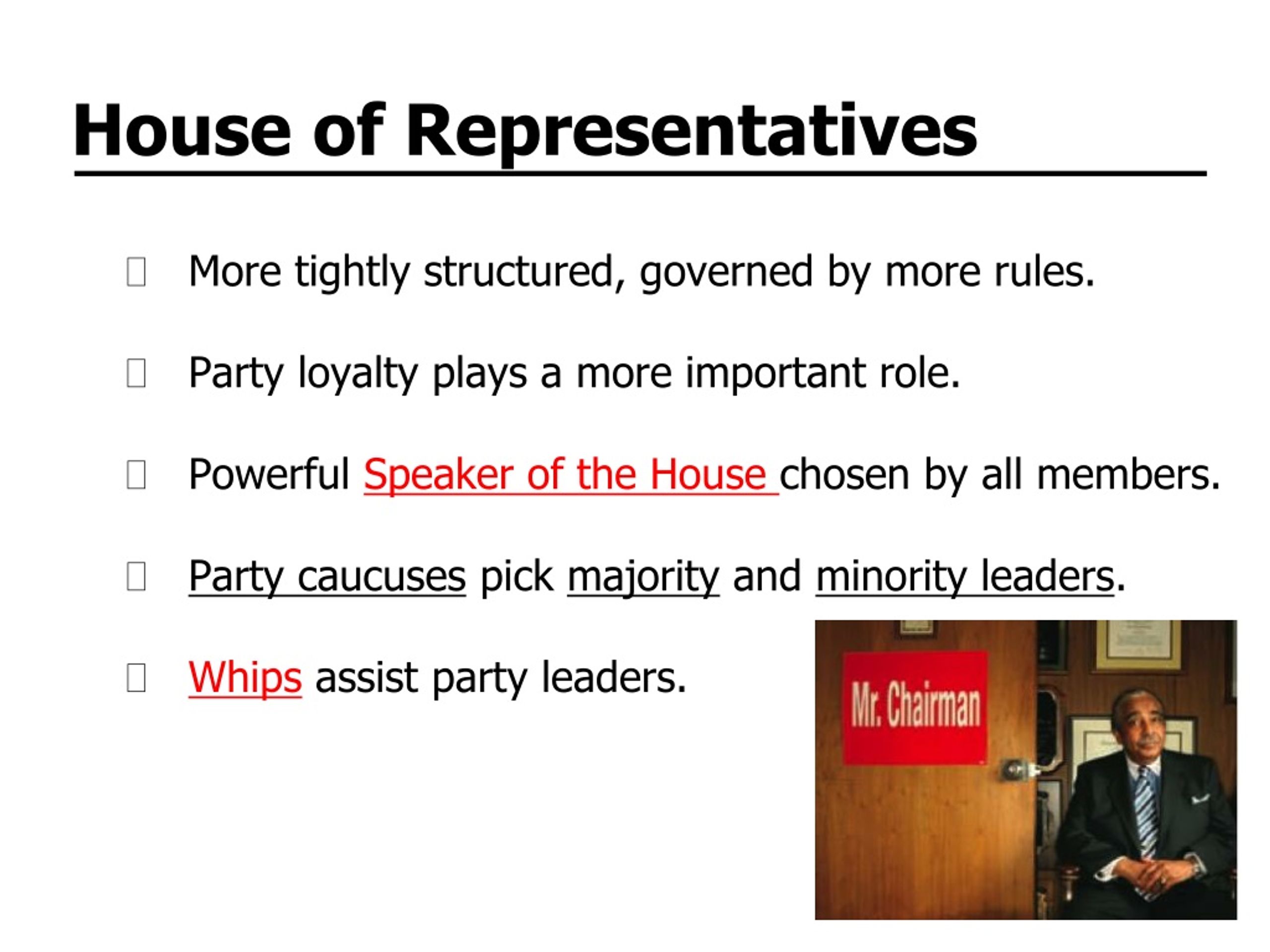Table Of Content

Other joint committees serve to make advisory reports; for example, there exists a Joint Committee on Taxation. Hence, the power of joint committees is considerably lower than those of standing committees. The House is also served by several officials who are not members. The House's chief such officer is the clerk, who maintains public records, prepares documents, and oversees junior officials, including pages until the discontinuation of House pages in 2011. The clerk also presides over the House at the beginning of each new Congress pending the election of a speaker.
Partisan mix of the House by state
However, these powers were curtailed in the "Revolution of 1910" because of the efforts of Democrats and dissatisfied Republicans who opposed Cannon's heavy-handed tactics. The number of voting representatives in the House is fixed by law at no more than 435, proportionally representing the population of the 50 states. Currently, there are five delegates representing the District of Columbia, the Virgin Islands, Guam, American Samoa, and the Commonwealth of the Northern Mariana Islands. The majority party members and the minority party members meet separately to select their leaders. Third parties rarely have had enough members to elect their own leadership, and independents will generally join one of the larger party organizations to receive committee assignments. The Constitution provides that the House may choose its own speaker.[50] Although not explicitly required by the Constitution, every speaker has been a member of the House.
Passage of legislation
Usually, these committees will make recommended changes to these pieces of legislation, before voting on whether or not to forward them to the entire House of Representatives or Senate for a vote. These differences have lessened over the years, but representatives elected to the House tend to be more engaged in the districts and communities they represent. Because they are elected every two years, they are typically more aware of current public opinion among their constituents. Interestingly, although the Senate is sometimes referred to as the “upper body,” and the House as the “lower body,” the two legislative bodies hold the same amount of power within the U.S. system. Both must agree to, vote on and adopt pieces of identical legislation (known as bills) in order for the legislation to become law. As outlined in the Constitution, the House represents citizens based on district populations, while the Senate represents citizens on an equal state basis.
Sign up for Inside History
Congress has created a wide variety of temporary and permanent commissions to serve as advisory bodies for investigative or policy-related issues, or to carry out administrative, interparliamentary, or commemorative tasks. Such commissions are typically created by either law or House resolution, and may be composed of House members, private citizens, or a mix of both. In some cases, the commissions are entities of the House or Congress itself; in other cases, they are crafted as independent entities within the legislative branch. After extensive debate, the framers of the Constitution agreed to create the House with representation based on population and the Senate with equal representation.
Senators by Party

House leadership includes the speaker, majority and minority leaders, assistant leaders, whips and a party caucus or conference. The speaker acts as leader of the House and combines several institutional and administrative roles. Majority and minority leaders represent their respective parties on the House floor. Whips assist leadership in managing their party's legislative program on the House floor.
The party with a majority of seats in the House is known as the majority party. The speaker, committee chairs, and some other officials are generally from the majority party; they have counterparts (for instance, the "ranking members" of committees) in the minority party. The House Majority Leader—who is also chosen from among the membership of the political party with the most seats in the House—schedules time for floor debate on legislation and sets the legislative strategy for the party in control. The most significant role in the House of Representatives is that of speaker of the House. This individual, who is chosen by the majority party, presides over debate, appoints members of select and conference committees, and performs other important duties; speakers are second in the line of presidential succession (following the vice president). The Constitution empowers the House of Representatives to impeach federal officials for "Treason, Bribery, or other high Crimes and Misdemeanors" and empowers the Senate to try such impeachments.
Tom EmmerAssists leadership in managing party's legislative program. Because the number of representatives in each state’s delegation is based on population, larger states such as New York and California elect more representatives to the House, each to two-year terms. A general rule of thumb is that each member of the House of Representatives represents roughly 600,000 people. Article 1, Section 2 of the Constitution provides for both the minimum and maximum sizes for the House of Representatives. The delegates and resident commissioner possess the same powers as other members of the House, except that they may not vote when the House is meeting as the House of Representatives.
Senators
The term of a member chosen in a special election usually begins the next day, or as soon as the results are certified. Regional conflict was most pronounced over the issue of slavery. One example of a provision repeatedly supported by the House but blocked by the Senate was the Wilmot Proviso, which sought to ban slavery in the land gained during the Mexican–American War. Conflict over slavery and other issues persisted until the Civil War (1861–1865), which began soon after several southern states attempted to secede from the Union.
Assistant Democratic Leader

Articles with the “HISTORY.com Editors” byline have been written or edited by the HISTORY.com editors, including Amanda Onion, Missy Sullivan, Matt Mullen and Christian Zapata. The Speaker of the House is also the second person in the U.S. presidential line of succession—the order in which presidents are replaced if they die, resign or are removed from office—after the Vice President and before the President pro tempore of the Senate. The Senate includes 100 members, with each of the 50 states electing two senators to this body of Congress to six-year terms. The House of Representatives has 435 members, with each of the 50 states electing varying numbers of legislators according to the size of their population. Given the shortcomings of the government created by the Articles of Confederation, the framers soon realized that a bicameral legislature at the national level would foster a more representative central government. Congress first convened in the newly independent country’s then-capital of New York City, heralding the birth of the two bodies that form the legislative branch of government—the House of Representatives and the Senate.
Committees also have oversight responsibilities to monitor agencies, programs, and activities within their jurisdictions, and in some cases in areas that cut across committee jurisdictions. Information about all receipts and expenditures of representatives, committees, leadership, and officers of the House. When the presidency and Senate are controlled by a different party from the one controlling the House, the speaker can become the de facto "leader of the opposition". Some notable examples include Tip O'Neill in the 1980s, Newt Gingrich in the 1990s, John Boehner in the early 2010s, and Nancy Pelosi in the late 2000s and again in the late 2010s and early 2020s. Since the speaker is a partisan officer with substantial power to control the business of the House, the position is often used for partisan advantage. Katherine ClarkAssists leadership in managing party's legislative program.
What's behind the recent wave of House retirements? - ABC News
What's behind the recent wave of House retirements?.
Posted: Wed, 20 Dec 2023 08:00:00 GMT [source]
While their role has fluctuated over the years, today they have many of the same privileges as voting members, have a voice in committees, and can introduce bills on the floor, but cannot vote on the ultimate passage of bills. Presently, the District of Columbia and the five inhabited U.S. territories each elect a delegate. A seventh delegate, representing the Cherokee Nation, has been formally proposed but has not yet been seated.[30] An eighth delegate, representing the Choctaw Nation is guaranteed by treaty but has not yet been proposed. Additionally, some territories may choose to also elect shadow representatives, though these are not official members of the House and are separate individuals from their official delegates. The states of Washington and California use a similar (though not identical) system to that used by Louisiana. The committees also play an important role in the control exercised by Congress over governmental agencies.

No comments:
Post a Comment